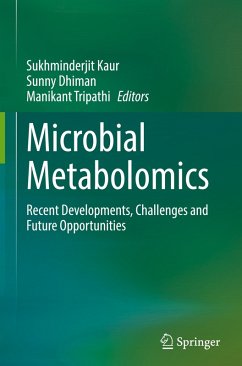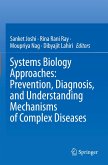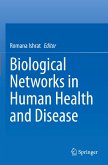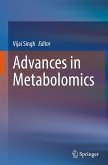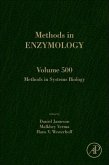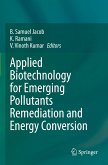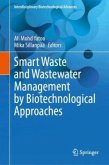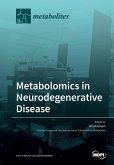Microbial Metabolomics
Recent Developments, Challenges and Future Opportunities
Herausgegeben:Kaur, Sukhminderjit; Dhiman, Sunny; Tripathi, Manikant
Microbial Metabolomics
Recent Developments, Challenges and Future Opportunities
Herausgegeben:Kaur, Sukhminderjit; Dhiman, Sunny; Tripathi, Manikant
- Gebundenes Buch
- Merkliste
- Auf die Merkliste
- Bewerten Bewerten
- Teilen
- Produkt teilen
- Produkterinnerung
- Produkterinnerung
This book explores the potential of microbial metabolism in health, agriculture, and environmental technologies, serving as a comprehensive guide to microbial metabolomics with practical applications. It uncovers the complex biochemical processes of microbes, from bacteria to fungi, revealing their impact on biotechnology, environmental sciences, healthcare, and agriculture. Microbes, the unseen drivers of biological processes, offer innovative solutions across these fields. The book examines the rapid advancements in microbial metabolomics and addresses challenges like data integration and…mehr
Andere Kunden interessierten sich auch für
![Systems Biology Approaches: Prevention, Diagnosis, and Understanding Mechanisms of Complex Diseases Systems Biology Approaches: Prevention, Diagnosis, and Understanding Mechanisms of Complex Diseases]() Systems Biology Approaches: Prevention, Diagnosis, and Understanding Mechanisms of Complex Diseases168,99 €
Systems Biology Approaches: Prevention, Diagnosis, and Understanding Mechanisms of Complex Diseases168,99 €![Biological Networks in Human Health and Disease Biological Networks in Human Health and Disease]() Biological Networks in Human Health and Disease151,99 €
Biological Networks in Human Health and Disease151,99 €![Advances in Metabolomics Advances in Metabolomics]() Advances in Metabolomics166,99 €
Advances in Metabolomics166,99 €![Methods in Systems Biology Methods in Systems Biology]() Methods in Systems Biology145,99 €
Methods in Systems Biology145,99 €![Applied Biotechnology for Emerging Pollutants Remediation and Energy Conversion Applied Biotechnology for Emerging Pollutants Remediation and Energy Conversion]() Applied Biotechnology for Emerging Pollutants Remediation and Energy Conversion151,99 €
Applied Biotechnology for Emerging Pollutants Remediation and Energy Conversion151,99 €![Smart Waste and Wastewater Management by Biotechnological Approaches Smart Waste and Wastewater Management by Biotechnological Approaches]() Smart Waste and Wastewater Management by Biotechnological Approaches191,99 €
Smart Waste and Wastewater Management by Biotechnological Approaches191,99 €![Metabolomics in Neurodegenerative Disease Metabolomics in Neurodegenerative Disease]() Metabolomics in Neurodegenerative Disease59,99 €
Metabolomics in Neurodegenerative Disease59,99 €-
-
-
This book explores the potential of microbial metabolism in health, agriculture, and environmental technologies, serving as a comprehensive guide to microbial metabolomics with practical applications. It uncovers the complex biochemical processes of microbes, from bacteria to fungi, revealing their impact on biotechnology, environmental sciences, healthcare, and agriculture. Microbes, the unseen drivers of biological processes, offer innovative solutions across these fields. The book examines the rapid advancements in microbial metabolomics and addresses challenges like data integration and metabolite identification, providing insights to unlock its full potential. It caters to the growing demand for advanced resources in microbiology and biotechnology, making it valuable for researchers, students, and professionals in microbiology, biotechnology, and biochemistry, as well as innovators in food security and green technology.
Produktdetails
- Produktdetails
- Verlag: Springer / Springer Nature Singapore / Springer, Berlin
- Artikelnr. des Verlages: 978-981-96-4823-8
- Seitenzahl: 488
- Erscheinungstermin: 9. Mai 2025
- Englisch
- Abmessung: 241mm x 160mm x 32mm
- Gewicht: 836g
- ISBN-13: 9789819648238
- ISBN-10: 9819648238
- Artikelnr.: 73398676
- Herstellerkennzeichnung
- Springer-Verlag GmbH
- Tiergartenstr. 17
- 69121 Heidelberg
- ProductSafety@springernature.com
- Verlag: Springer / Springer Nature Singapore / Springer, Berlin
- Artikelnr. des Verlages: 978-981-96-4823-8
- Seitenzahl: 488
- Erscheinungstermin: 9. Mai 2025
- Englisch
- Abmessung: 241mm x 160mm x 32mm
- Gewicht: 836g
- ISBN-13: 9789819648238
- ISBN-10: 9819648238
- Artikelnr.: 73398676
- Herstellerkennzeichnung
- Springer-Verlag GmbH
- Tiergartenstr. 17
- 69121 Heidelberg
- ProductSafety@springernature.com
Dr. Sukhminderjit Kaur is a Professor in the Department of Biotechnology at Chandigarh University, India. She earned her Ph.D. from PGIMER, Chandigarh, in 2008 and has over 20 years of academic and research experience. She has published 58+ research and review articles in high-impact journals and contributed to several book chapters. She holds two patents for biofertilizer formulations and has edited the book “Futuristic Approaches in Biofertilizer Industry” (Springer Nature, 2 volumes). She has guided four Ph.D. students and received the Young Scientist Award in 2011 at the National Conference on Impact of Science and Technology on Societal Development. She is a member of the Indian Science Congress, the Association of Microbiologists of India, and the Gastrointestinal Society of India. Her research focuses on biofertilizers, probiotics, and bioremediation. Dr. Sunny Dhiman, an Associate Professor at the Department of Biotechnology, Chandigarh University, India, has been actively engaged in research, education, and scientific writing within his field for over 13 years. Dr. Dhiman has published more than 40 peer-reviewed articles, including 16 book chapters, two patents, and three international books. His research focuses on microbial biorefinery technologies, microbial metabolic capabilities for waste valorization, production, purification, and optimization of microbial enzymes and pigments. Beyond his research endeavors, Dr. Dhiman actively participates as a guest editor and reviewer for numerous international journals, reflecting his commitment to advancing scientific discourse and knowledge dissemination within his field. Dr. Manikant Tripathi is an Assistant Professor in Biotechnology Program, Dr. Rammanohar Lohia Avadh University, Ayodhya, Uttar Pradesh, India. He has more than 10 years of teaching and research experience. He is M.Sc. and Ph.D. in Microbiology. He has published 85 peer-reviewed articles, including 13 book chapters, and edited five international books. He is the recipient of many awards, including Young Scientist Award and Excellence in Research Award. He has guided postgraduate students on their dissertation work. He is also an Editorial Board Member of many International Journals. Moreover, he has participated in several national and international conferences, seminars and workshops. His current research work focuses on microbial biotechnology, biomass valorization, environmental and agricultural biotechnology, nanobiotechnology and bioactive applications.
Chapter 1. Microbial metabolomics: a futuristic approach in biotechnology.- Chapter 2. Microbial metabolomics: development, applications and future prospects.- Chapter 3. Microbial metabolite databases.- Chapter 4. Integrating Metabolomics with Omics Techniques: Exploring Cutting-Edge Technologies in Comprehensive Biological Analysis.- Chapter 5. Metabolic Modeling and Flux Analysis: Intersections with Other Omics Techniques- Chapter 6. Role of Proteomics, Genomics, and Transcriptomics in the Utilization of Synthetic Biology Tools for Successful Metabolic Engineering Projects- Chapter 7. Uncovering Pathogen Metabolism: A Key to Infectious Disease Mitigation"- Chapter 8. Integrating Metabolomics with Next-Generation Approaches for Mitigating Emerging Pathogens- Chapter 9. Microbial metabolomics for nutraceutical developments and their applications- Chapter 10. Exploring synergies of Microbial Metabolomics with other omics techniques: Enhancing Drug Discovery and Pharmaceutical Production.-Chapter 11. Metabolomics in food fermentations and designing functional foods.- Chapter 12. Metabolomics for plant growth promoting microbe profiling and designing biofertilizer.- Chapter 13. Microbial Metabolomics for pest management: leads and flaws.- Chapter 14. Omics for Thriving Plant-Microbiomes: Growing Food Security for a Sustainable Future.- Chapter 15. Metabolomics in understanding and mitigating metal toxicity.- Chapter 16. Artificial intelligence and machine learning in microbial degradation of pollutants and toxins.- Chapter 17. Ethical implications and Regulatory frameworks for microbial products and processes.- Chapter 18. Microbial contributions to a circular economy.- Chapter 19. Clinical Application of Metabolomics in Infectious Diseases and Future Perspectives.- Chapter 20. Advancing Fish Nutrition Research Through Metabolomics: Unveiling and Optimizing Nutritional Pathways.
Chapter 1. Microbial metabolomics: a futuristic approach in biotechnology.- Chapter 2. Microbial metabolomics: development, applications and future prospects.- Chapter 3. Microbial metabolite databases.- Chapter 4. Integrating Metabolomics with Omics Techniques: Exploring Cutting-Edge Technologies in Comprehensive Biological Analysis.- Chapter 5. Metabolic Modeling and Flux Analysis: Intersections with Other Omics Techniques- Chapter 6. Role of Proteomics, Genomics, and Transcriptomics in the Utilization of Synthetic Biology Tools for Successful Metabolic Engineering Projects- Chapter 7. Uncovering Pathogen Metabolism: A Key to Infectious Disease Mitigation"- Chapter 8. Integrating Metabolomics with Next-Generation Approaches for Mitigating Emerging Pathogens- Chapter 9. Microbial metabolomics for nutraceutical developments and their applications- Chapter 10. Exploring synergies of Microbial Metabolomics with other omics techniques: Enhancing Drug Discovery and Pharmaceutical Production.-Chapter 11. Metabolomics in food fermentations and designing functional foods.- Chapter 12. Metabolomics for plant growth promoting microbe profiling and designing biofertilizer.- Chapter 13. Microbial Metabolomics for pest management: leads and flaws.- Chapter 14. Omics for Thriving Plant-Microbiomes: Growing Food Security for a Sustainable Future.- Chapter 15. Metabolomics in understanding and mitigating metal toxicity.- Chapter 16. Artificial intelligence and machine learning in microbial degradation of pollutants and toxins.- Chapter 17. Ethical implications and Regulatory frameworks for microbial products and processes.- Chapter 18. Microbial contributions to a circular economy.- Chapter 19. Clinical Application of Metabolomics in Infectious Diseases and Future Perspectives.- Chapter 20. Advancing Fish Nutrition Research Through Metabolomics: Unveiling and Optimizing Nutritional Pathways.

